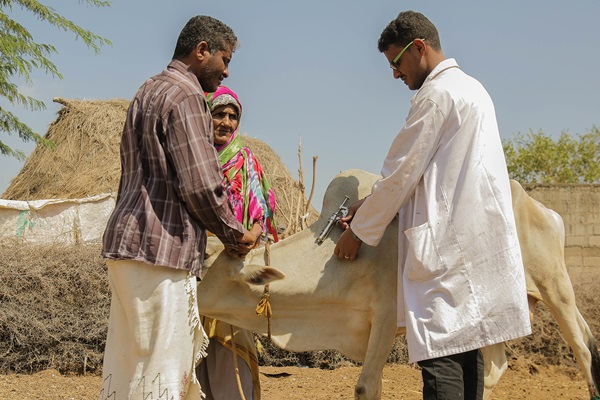
Rome - The COVID-19 pandemic has spurred efforts to forge an integrated approach to the challenges of human, animal and ecosystem health, with the Food and Agriculture Organization of the United Nations (FAO) stepping up work on a roadmap for putting it into practice.
FAO, which over the last year held the rotating chair of the Tripartite, also including the World Health Organization (WHO) and the World Organization for Animal Health (OIE), has played a key role in developing a Joint Plan of Action for One Health.
“We have made great strides to advance action on the ground,” said FAO Deputy Director-General Maria Helena Semedo. “What’s also very important is that the One Health approach is now well-anchored on the international agenda in major fora such as the G7, G20, the Global Health Summit and the UN Food Systems Summit,” she added.
FAO prepares for handover
This progress comes as FAO prepares to hand over the chair to WHO and as the partnership is strengthened with the addition of the UN Environment Programme (UNEP).
The main focus areas of the action plan will be enhancing One Health capacities to strengthen health systems; reducing the risks from emerging or resurfacing zoonotic epidemics and pandemics; controlling and eliminating endemic zoonotic, neglected tropical or vector-borne diseases; strengthening the assessment, management and communication of food safety risks; curbing the silent pandemic of antimicrobial resistance (AMR) and integrating the environment into One Health.
The past year has seen strong uptake for the One Health approach. The Italian Presidency of the G20 presented a paper from the Tripartite, UNEP and the World Bank, on “Investing in One Health”, recognizing the need for One Health financing and citing the Joint Plan of Action for One Health as a global investment framework.
Adding more strategic relevance to the broader political landscape for One Health, the One Health Global Leaders Group on AMR was launched under FAO’s Chair.
Response to resource mobilization
Given the crucial need for support, especially among low- and middle-income countries, FAO’s Chair also saw strong initial response to its resource mobilization, including from the Bill and Melinda Gates Foundation and the Government of the United Kingdom for a scoping study.
Other key programmes have also received support, including the FAO Emergency Centre for Transboundary Animal Diseases ‒ with the United States replenishing the programme cycle for five years as well as pledging for FAO’s One Health Programme and COVID-19 Response and Recovery Programme.
Underpinning all these steps has been a sustained effort at awareness-raising, learning and engagement, including through the One Health Regional Platforms and youth initiatives focusing on One Health and AMR.